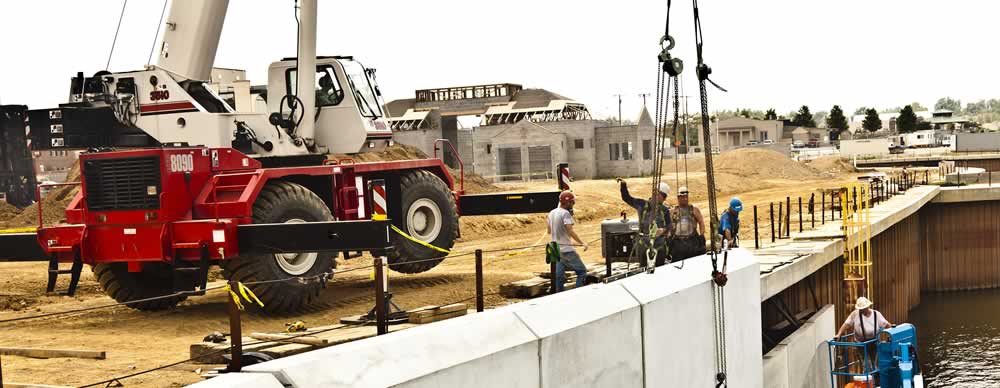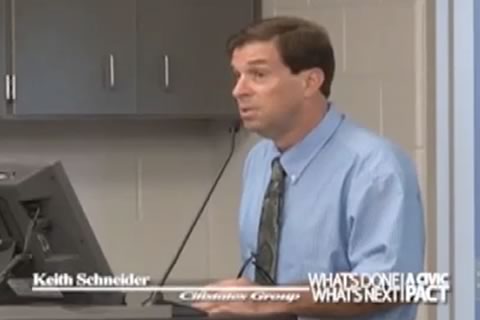Chapter Gallery of Images
What's Done, What's Next: A Civic Pact
Chapter Two:
Underlying Big Decisions,An Owensboro Operating System That Works, Mostly
by Keith Schneider
August 19, 2011
A Process That Works
Disagreement, after all, describes the give and take of democracy — when it’s working well. Over time, Owensboro developed a public process that generally encouraged civil debate, not public bludgeoning, even when disagreements grew fierce, as they did in 2007. That year a group of citizens hired attorney Charles Wible to block a proposed $300 million development along Highway 54 that would have used public financing to build a sports arena, hotel, convention center, office developments, cinemas, homes, and retail space. A Kentucky state board later determined that the tax incentives and financing sought by the developers did not fit state criteria.
There were several useful outcomes from that policy struggle. It focused fresh attention on the need to put those same big public assets downtown. The defeat of the Highway 54 proposal informed and energized a ground-breaking community meeting in November 2007, hosted by the Public Life Foundation and Washington-based AmericaSpeaks and attended by hundreds of citizens, that confirmed Owensboro’s commitment to investing in the downtown core. It helped in the election of Mayor Payne, who recognized he could work directly with Judge Executive Reid Haire and the Daviess County Fiscal Court to implement a land use development plan and a funding strategy to pay for new downtown projects.
By the current standards of American policy-making, the campaign for downtown development proceeded steadily, and by comparison, quickly enough. The momentum bolstered the traditional culture of civility in Owensboro’s public process, which helped explain why there was such stability in the community’s leadership.
Owensboro’s public meetings for the most part aren’t brutal, as they’ve become in so many other communities, where citizens verbally bludgeon elected leaders and officials operate in a sphere of suspicion and doubt. Even the February 2009 meeting to approve the insurance tax increase, described by those who attended as tense, did not break down into chaos. There were legitimate questions and concerns about a tax increase during a recession. There was also a sense – even from the business community – that it was time that Owensboro invested in its future.
If the Owensboro process was dominated by angry hand waving and vile language — behavior that participants certainly didn’t learn from their mothers — Owensboro’s primaries wouldn’t be so competitive, city commissioners wouldn’t routinely run for mayor or county judge executive, and business executives wouldn’t choose to devote so much of their time to be involved in big public decisions.
Debate, Not War

Owensboro and Daviess County officials defied the tax-cutting, investment-starving tilt of much of Kentucky and the nation and made courageous and highly disputed decisions to raise revenues for public projects.
It’s not perfect. To be sure, Owensboro’s citizens, and a good number of its leaders outside of government consistently critique the local governing process as too closed to differing views, to some extent too insulated from public opinion. Questions of fairness are routinely raised.
Owensboro’s residents and leaders, though, need to spend time in the verbal abuse chamber of public meetings in Illinois or North Carolina or California, where citizens come emotionally armed for pitched combat, and the shouting is so loud the needle on the decibel meter swings to the top of the scale.
In those communities the democratic process is broken. Conflict takes priority over resolution. Delay and defeat prevail. Most importantly citizens and elected officials spend much of their time coming to the conclusion that doing nothing is superior to taking action. The result is fear of the future, now defined in the United States by new and disorienting battle slogans — shouldn’t, can’t, won’t and don’t.
Owensboro, though, rejected that trend. It produced a kind of golden era of growth and change from 2005 to 2011 that is characterized by the principles and values that once defined the United States but are now largely confined to well-managed American cities – should, can, will, and do.
The steps Owensboro took to achieve that new positioning are readily visible. Research organizations, among them the Greater Owensboro Economic Development Corporation, made the case for a regional business strategy that stressed the quality of downtown as a magnet for people and new growth. Citizens elected capable leaders to the city and county governments who embraced the concept.
Owensboro and Daviess County officials defied the tax-cutting, investment-starving tilt of much of Kentucky and the nation and made courageous and highly disputed decisions to raise revenues for public projects. Those included a downtown master plan, new riverfront parks, enhanced public spaces to reconnect the waterfront to the heart of downtown, mixed-use redevelopment project downtown, and streetscaping, to name a few. Real estate investors, among them Larry Conder, Malcolm Bryant, Terry Woodward, and First Security Bank quickly justified the public investment with over $32 million in proposals for a hotel, office building, and new residences and shops that already are generating new jobs.
Chapter two of What’s Done, What’s Next: A Civic Pact focuses on the governing process that made those achievements possible. From the 2005 phone call from Senator Mitch McConnell to former Mayor Tom Watson offering serious federal aid for a riverfront park, to the upcoming 2011 design decision for a new convention center, Owensboro has embraced big economic development steps that put it in rare company among small cities anywhere in the nation.
Indeed, underlying Owensboro’s decisions on downtown development, and the other policy and investment breakthroughs of recent years, is an operating system that has moved more diligently than most small metropolitan regions in the United States to raise money and compete in an era of enormous change that has no fixed rules of engagement.
How that operating system functions defines much of what Owensboro provides for its citizens and presents to the world.

